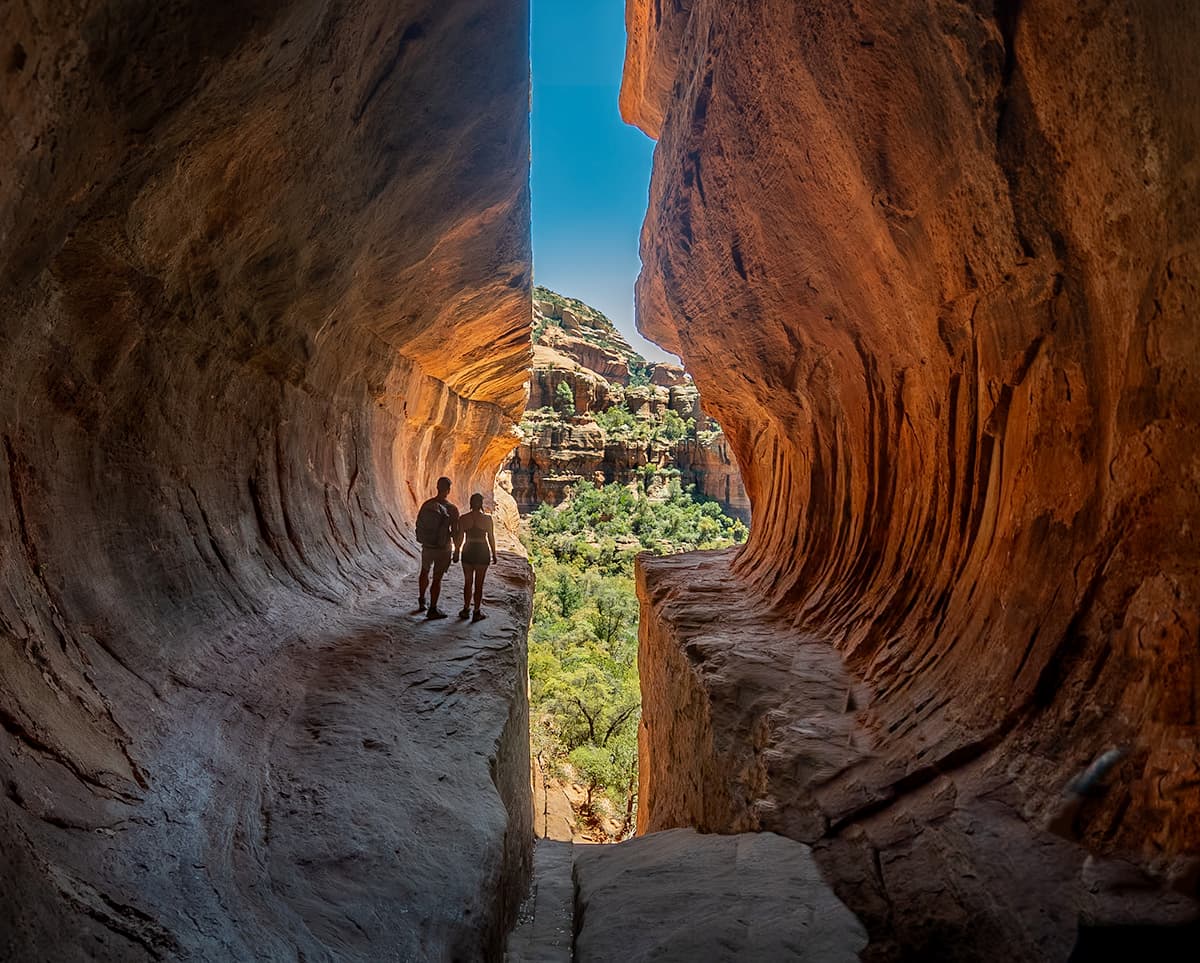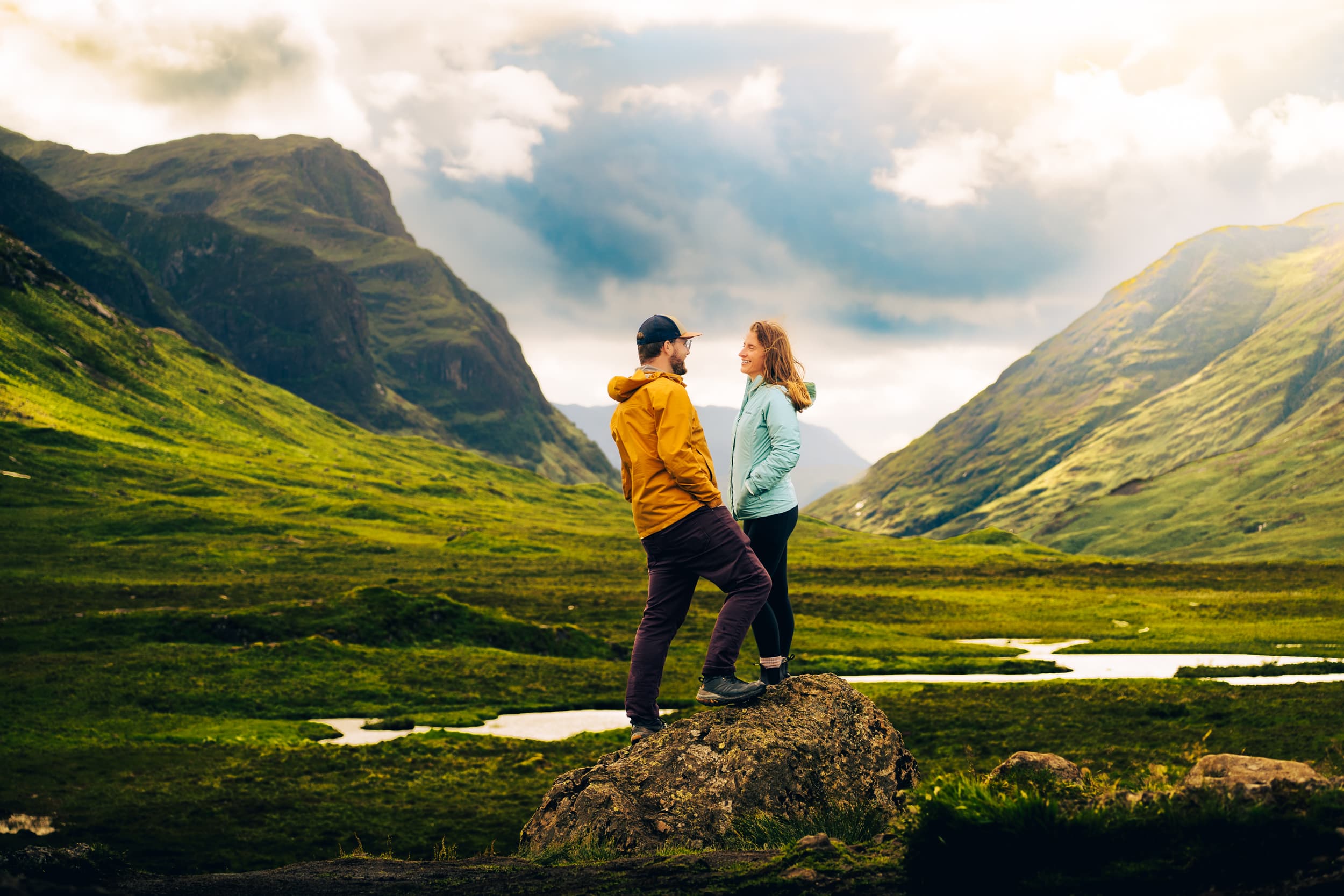If you’ve ever been on Instagram, you’ve no doubt seen the Subway Cave in Sedona, Arizona, with rounded, red walls on each side and a jaw-dropping view out of its opening. If you want to enjoy this unique place, you’ll need to get there along an unmarked offshoot of the Boynton Canyon Trail, a moderately challenging hike through Sedona’s famed red rock formations and ponderosa pine tree forests. Here’s everything you need to know to get to the Subway Cave, the most beautiful cave in Sedona.
This post may contain affiliate links. If you make a purchase through them, we may receive a small commission, for which we are extremely grateful, at no extra cost to you.
About the Hike to the Subway Cave
As mentioned above, you’ll need to take an offshoot along the Boynton Canyon Trail to get to the Subway Cave. Here’s the stats for the Boynton Canyon Trail:
- Length: 7.5 miles (or 5.3 miles if you’re just hiking from the trailhead to the Subway Cave)
- Elevation gain: 1,164 feet (or 534 feet if you’re just hiking to the Subway Cave)
- Difficulty: Moderate
- Dog-friendly? Fur baby friends are allowed on the trail, but must stay on a leash. That being said, there are some narrow ledges with steep drop-offs in the cave, so I’m not sure I’d recommend it!
- Trail map
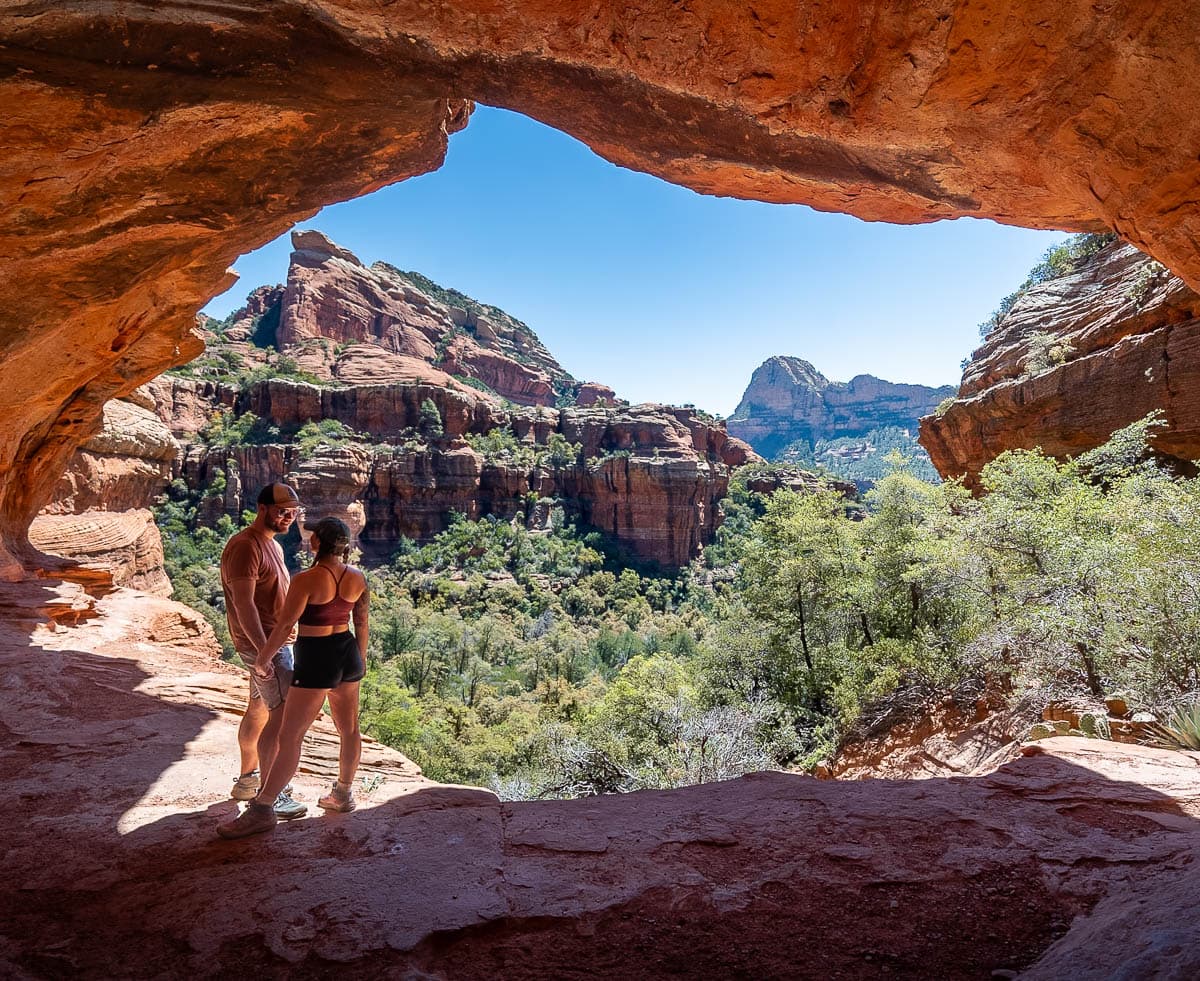
How to Get to the Boynton Canyon Trailhead
The trailhead for Boynton Canyon is located here, along Boynton Canyon Road, about 10 minutes northwest of downtown Sedona.
The parking lot holds about 40 cars. Due to the trail’s popularity, the lot frequently fills up by 7:30 AM, especially during busy periods, like weekends during spring and fall. My husband, Justin, and I visited on a weekday in March and still couldn’t find a parking spot here around 9 AM.
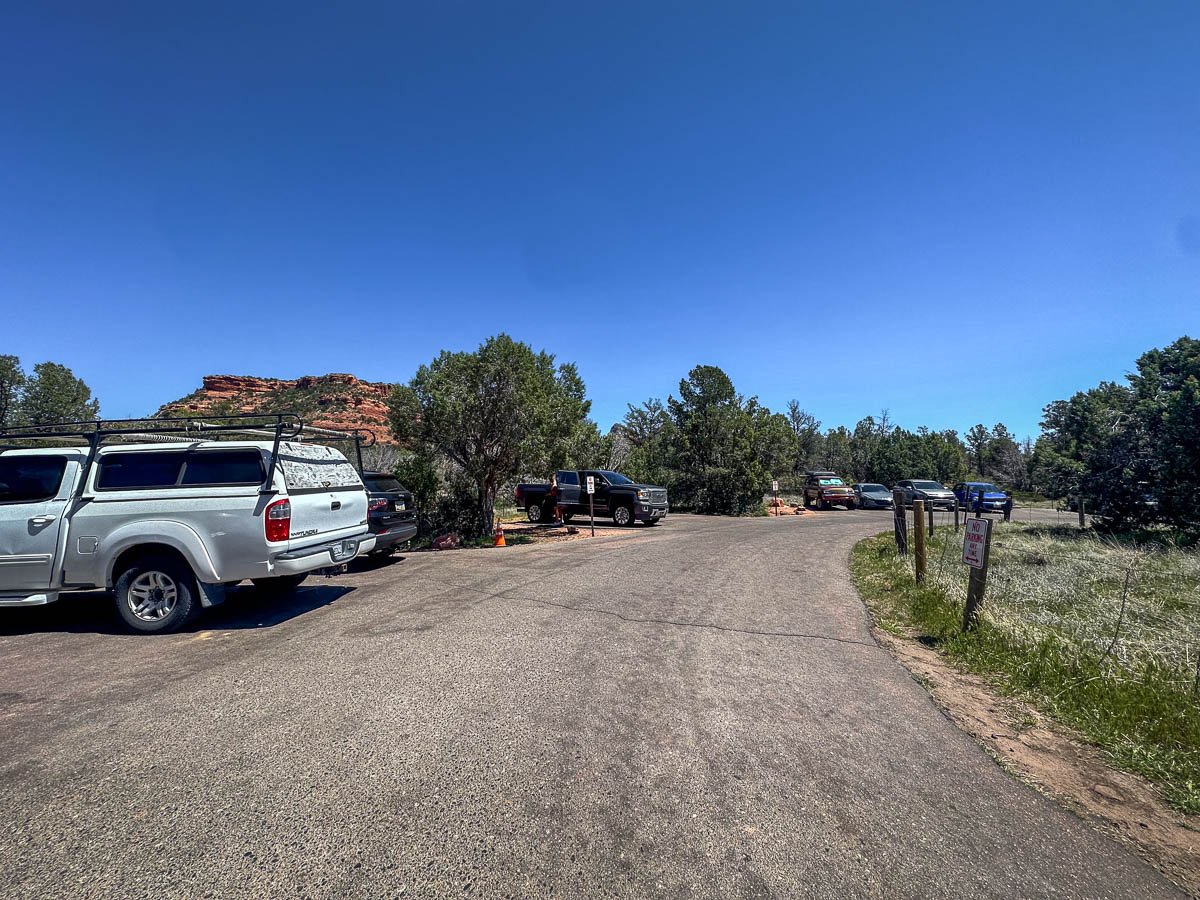
You cannot park on the street that immediately leads to the parking lot, Boynton Canyon Road, but there is street parking available, about 0.1 miles south, on Boynton Pass Road. Just be sure to abide by any parking signs here—Sedona police LOVE giving tickets!
Even the nearby street parking can fill up during busier periods (it was totally full when we hiked Boynton Canyon!), so I suggest trying to get to the trail on the earlier side to ensure you can snag a spot.
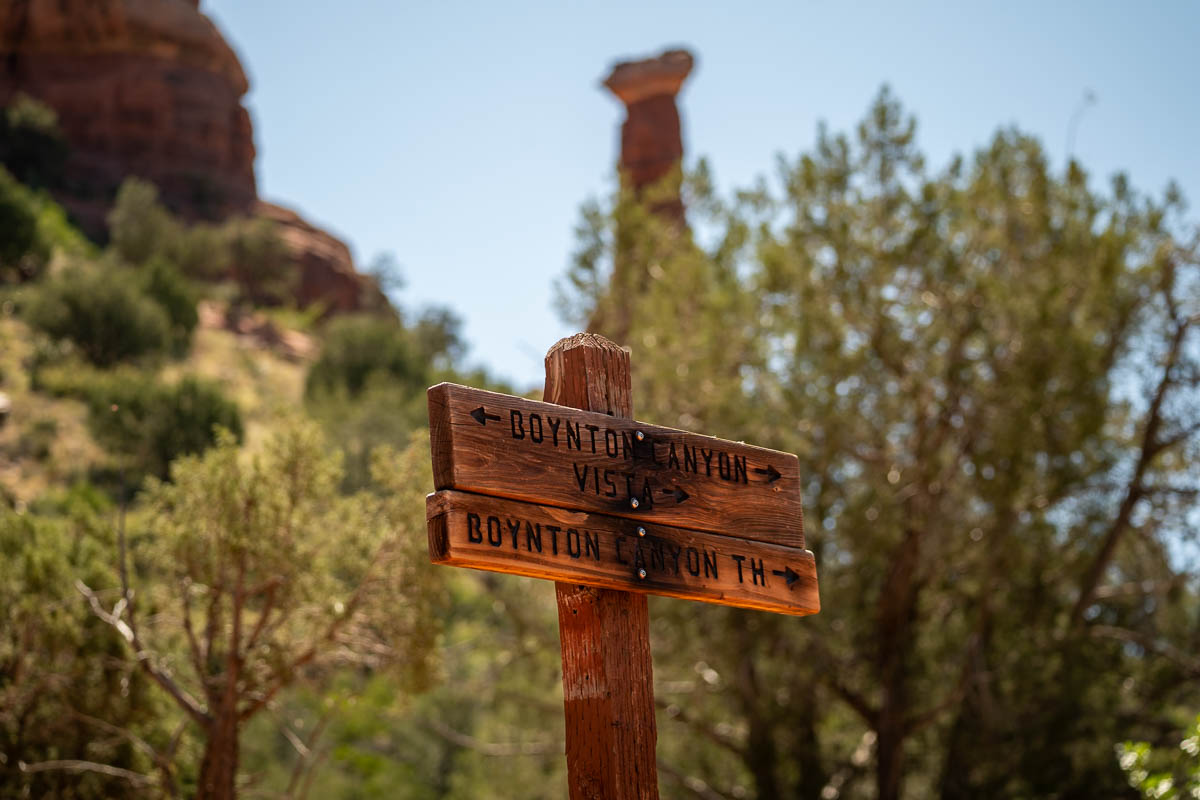
In order to park at the trailhead, you need to have a Red Rocks Pass, which you can purchase in the parking lot, online, or at various businesses around Sedona for either $5 per day or $15 per week. Alternatively, if you’re planning on visiting lots of National Parks in the year following your visit to Sedona, it may make sense to instead pick up an America the Beautiful Pass, which, for $80, gets you into all of the U.S. National Parks (and over 2,000 other federally managed sites) for free for an entire year!
Getting to the Subway Cave along the Boynton Canyon Trail
Boynton Canyon trail to the Subway Cave turn-off
There’s a number of hikes that depart from the trailhead, so be sure to follow signs for the Boynton Canyon Trail.
The path climbs gently upwards through desert flora, with towering red rock cliffs on the right hand side. One of the only things I didn’t love about this trail is that, for the first 1.2 miles, its left side is lined with residential housing and the Enchantment Resort property. It definitely doesn’t feel like you’re immersed in *nature* in this section, but eventually, the man-made structures do peter out and you’ll be totally surrounded by forest.
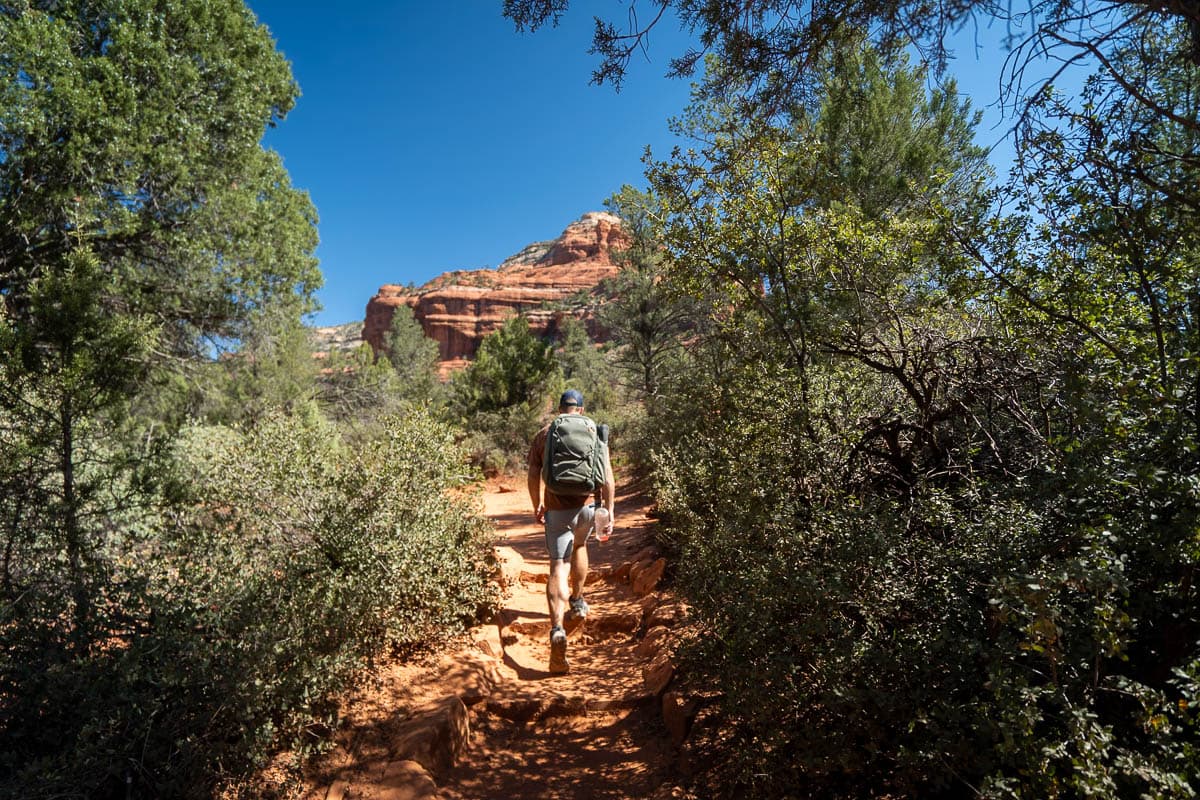
You’ll hike along the trail for 2.3 miles until you reach the unmarked turnoff for the Subway Cave, which is located here. Keep a lookout for a MASSIVE alligator juniper tree on the left side of the trail and usually an arrow made out of sticks and rocks on the ground that points to the turn-off for the social trail.
I honestly was SO worried about missing this turn-off, but, in the last half a mile or so before we reached it, almost every single person that we passed kept assuring us how far it was away or that we were getting close to it. So if your experience is anything like our own, you won’t have any problem finding it!
Turn-off to the Subway Cave
Once you’ve found the turn-off for the Subway Cave, the dirt pathway climbs uphill through the forest towards a cliffside for about 0.4 miles.
The trail here is pretty well-defined. However, there is one fork near where a tree has fallen over, obstructing part of the pathway—here, you’re going to want to follow the pathway up to the right. As you get closer to the cliffside, you’ll see a few posted signs by the national forest about being close to archeological sites. You’re almost there!
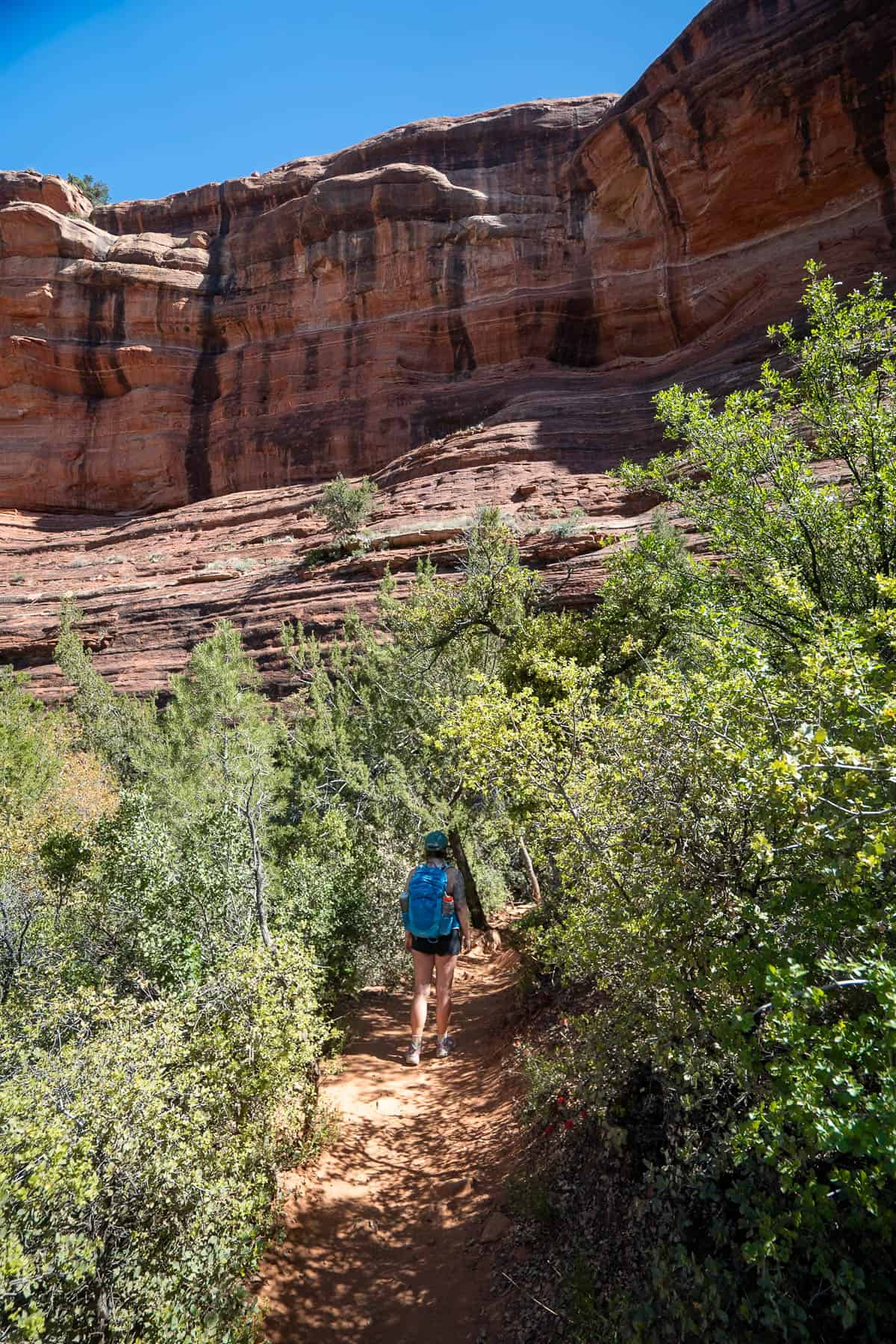
Once you’re at the base of the cliffside, you’ll have two options for climbing up to the Subway Cave.
The first option that you’ll reach is an extremely steep slickrock incline directly up to the cave that you’ll need to scramble up on your hands and knees. The rock here is pretty slippery and I’d only recommend trying to get up this way if you’re wearing proper hiking shoes with traction and have a bit of experience with rock scrambling on trails.
This is how Justin and I got up to the cave. We hike all the time, so we didn’t think this was particularly challenging. That being said, there were a LOT of people making the climb while we were there that seemed to really be struggling or even absolutely petrified of the experience.
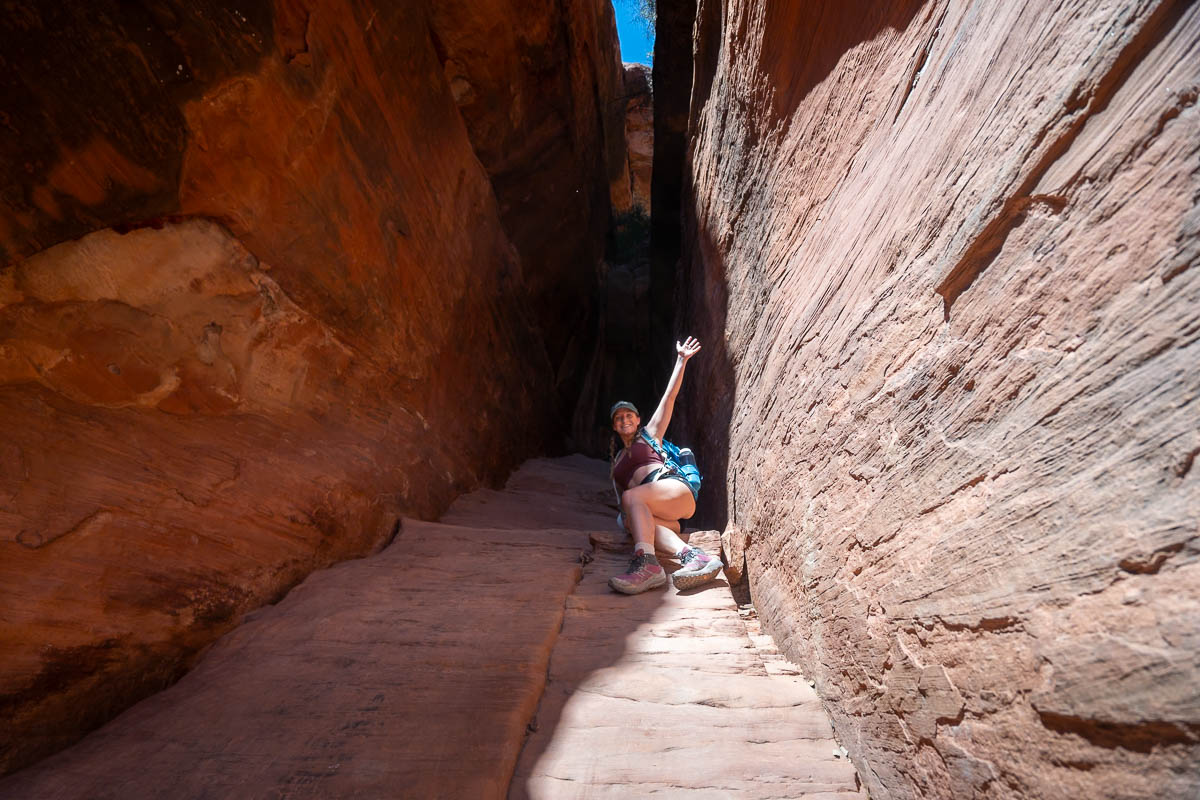
But there’s no reason to be petrified—there’s a MUCH easier way to reach the cave! Instead of climbing up the rock incline, continue left along the base of the cliffside for a few hundred feet. Here, there’s a less steep rocky pathway that you can easily climb up to a ledge that hugs the side of the cliffside and leads you right to the cave.
If you do wind up climbing up the slickrock incline, you’ll reach the very back of the Subway Cave, which offers outstanding views of its uniquely shaped walls and, beyond, some of Sedona’s famed dramatic rock formations. There’s all kinds of cool caves in Sedona, like the Birthing or Keyhole Cave, but, in my opinion, this one is the most beautiful!
There’s two ledges that jut out past the cave’s rounded walls that you can walk out onto, but be careful—they can get quite narrow and have a drop-off of at least fifteen feet or so.
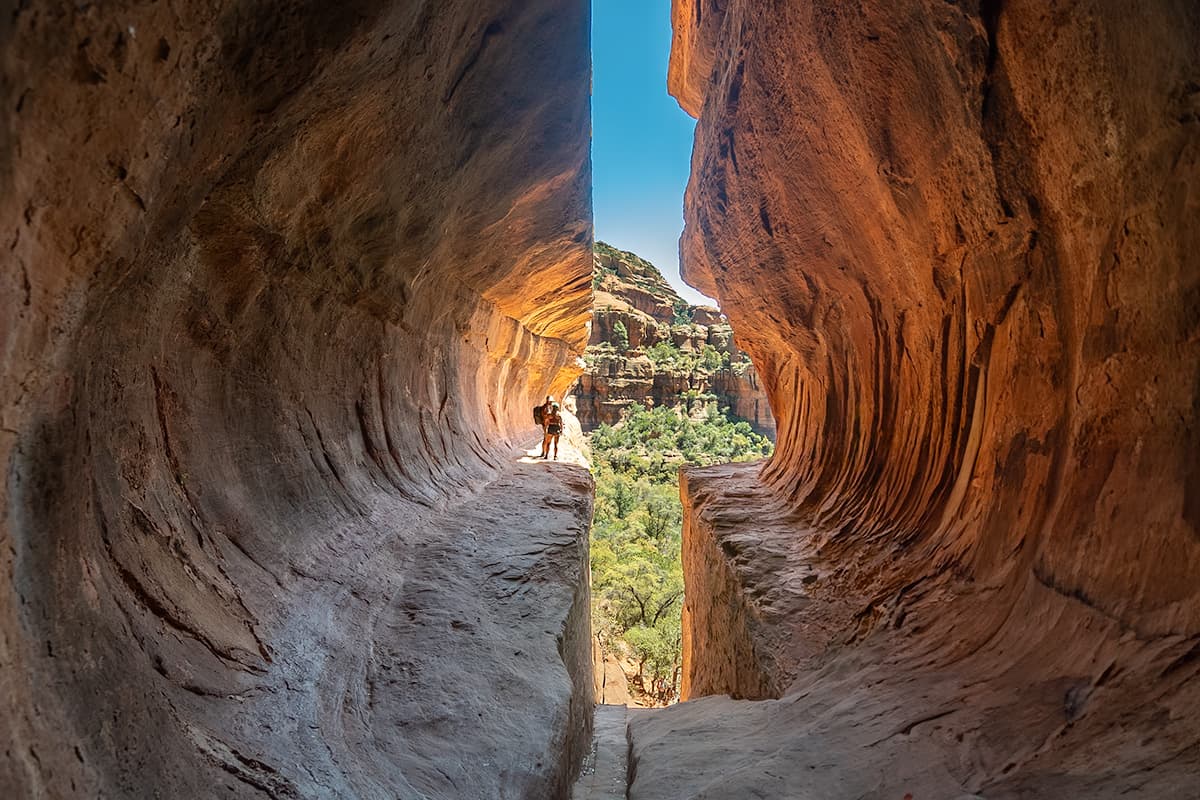
Once you’re done enjoying the views, follow the ledge to the right of the cave, which wraps around the cliffside and leads to some smaller caves, which have really cool ancient artifacts left behind by the Sinagua people, including petroglyphs and ruins.
Please be careful around these artifacts. Do not touch or otherwise disturb them and leave them better than you found them. Not only is vandalizing them a federal crime, but it’s also incredibly disrespectful to the Indigenous communities that have called Sedona home for thousands of years.
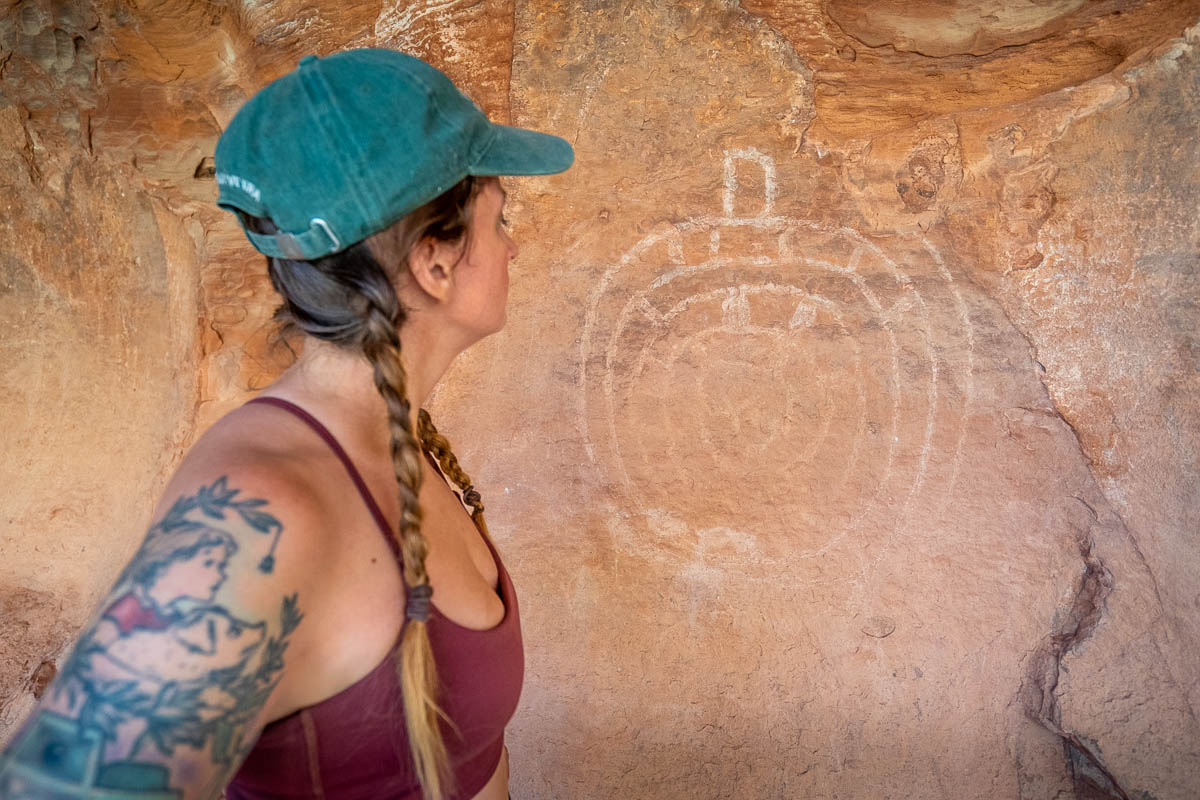
To exit, you can descend either of the two ways you can use to get up to the cave (the slickrock ramp to the right or the rocky pathway to the left). The rocky pathway is definitely going to be the easier route down for most people!
From here, simply follow the pathway back to the main Boynton Canyon Trail.
Optional add-ons to the trail
If your only goal of hiking Boynton Canyon was to see the Subway Cave, feel free to retrace your steps back to the trailhead.
Otherwise, the Boynton Canyon Trail continues west for about 1.1 miles one-way, getting increasingly steeper as you reach its ends. The trail ends with a viewpoint of the surrounding red rock cliff sides, with lots of juniper trees at the base. We thought it was a bit underwhelming, especially given how stunning the Subway Cave is, so I’d personally recommend skipping it.
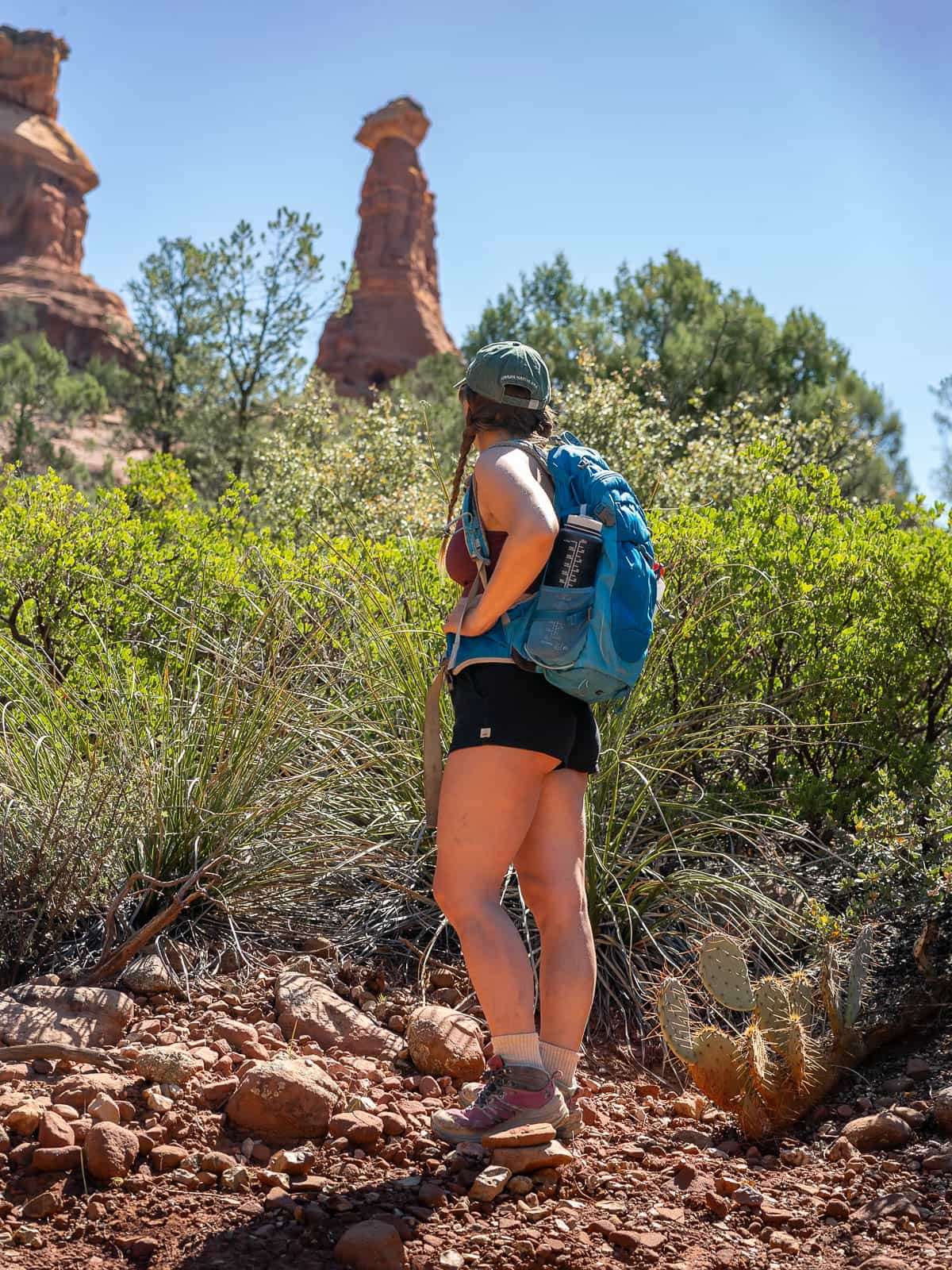
On your way back to the trailhead, you can also make a slight detour along the Boynton Vista Trail, which adds about half a mile round trip to your hike. The well-signed junction for this trail is located here and is about 0.3 miles from the trailhead.
This trail leads you up to a cool sandstone pyramid formation, which is believed to be one of Sedona’s famed energy vortex sites. Even if you’re not into the whole energy vortex thing, it still offers panoramic views of the surrounding cliffside (and the Enchantment Resort’s parking lot!).
When to hike to the Subway Cave
We’ve visited Sedona multiple times across all the seasons and think that spring and fall are by far the best times to visit. The weather is pleasantly warm and the skies are usually clear.
However, we’re unsurprisingly not alone in thinking this is a great time to visit. They’re definitely the busiest seasons in Sedona so be prepared to share the trails—and the Subway Cave!—with lots of other visitors.
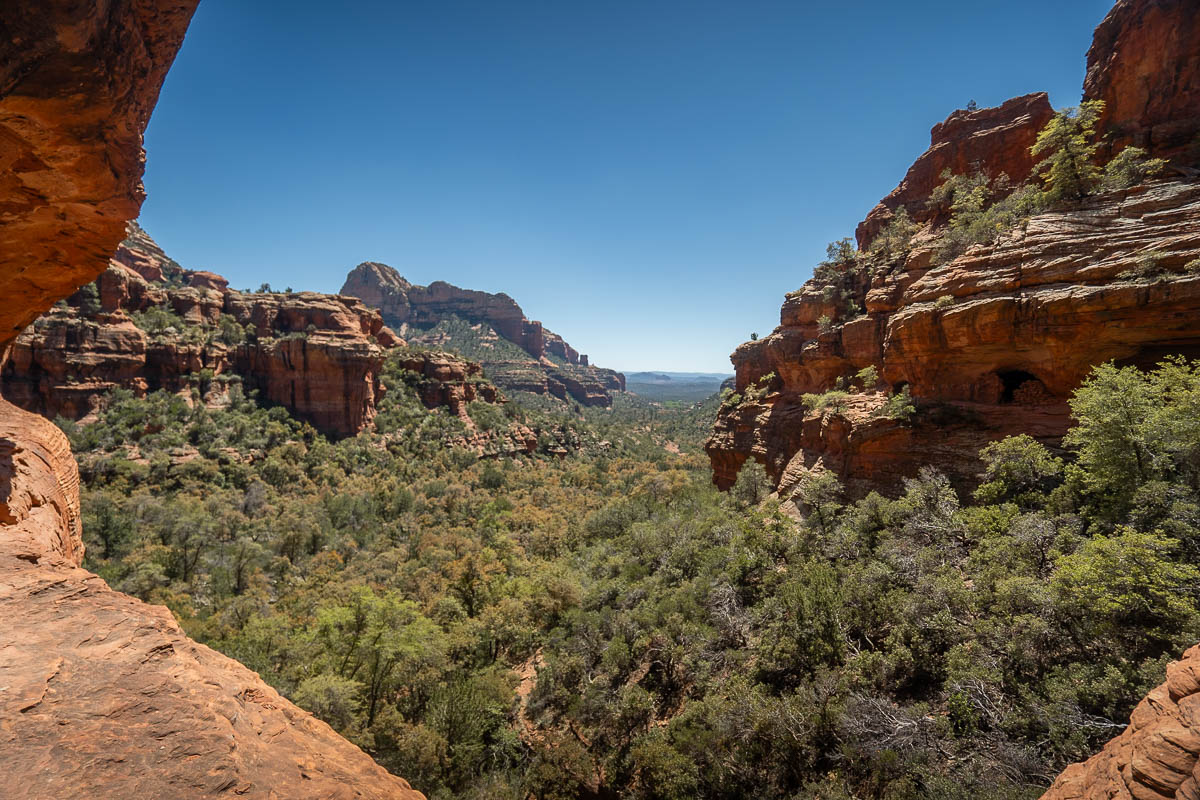
Although Sedona is at a higher elevation than most other popular destinations in Arizona, it still gets swelteringly hot in the summertime, with the heat index regularly exceeding 100 degrees. If you do visit during this time period, I’d suggest packing lots of water and sunscreen (there’s limited shade on the trail) and starting your hikes in the early morning.
Winter is an underrated season in Sedona, in my opinion. Daytime temperatures are usually quite pleasant, with highs in the upper 50s, plus the red rocks of Sedona look absolutely STUNNING dusted with snow. That being said, the steep rock inclines and narrow ledges along the Subway Cave trail can get covered in patches of ice, so wear hiking shoes with proper traction and be extremely cautious with your footing.
Tips for hiking to the Subway Cave in Sedona
If you want photos or videos with no one else in them, go EARLY
Due to the Subway Cave’s rise to Instagram fame, it can get quite crowded, making it extremely challenging to get photos or videos without other people in them.
We had read online that people were generally respectful of other hikers trying to get their own photos and videos, forming a line so that everyone could get their turn—but, to be honest, that couldn’t be further from our experience here.
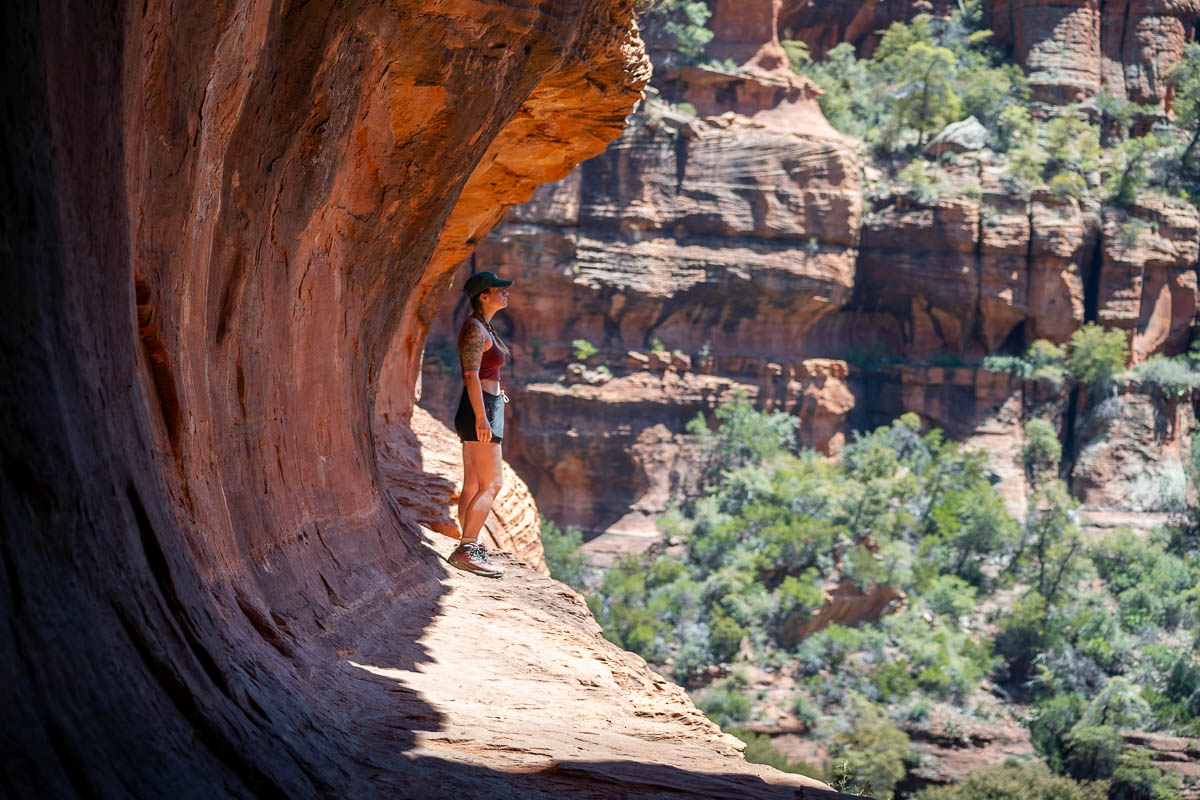
So, if that’s something that’s important to you, I’d recommend trying to come as early as possible and preferably on a weekday. Plus you’ll get to enjoy the stunning views in relative peace and quiet!
Regardless of what time of day you go, please remember to be courteous to others enjoying the cave—be patient, wait your turn, and be mindful of others waiting while you take the photos and videos that you want!
This trail is not recommended for really little kids
Between the steep pathways up to the Subway Cave and the narrow ledges with significant drop-offs, I wouldn’t recommend this hike for really little kids or kids who struggle to follow directions. It would be extremely easy to get hurt along the trail and there’s definitely plenty of other cool—and not as sketchy—hikes in Sedona that would be more kiddo-friendly, like the West Fork Trail.
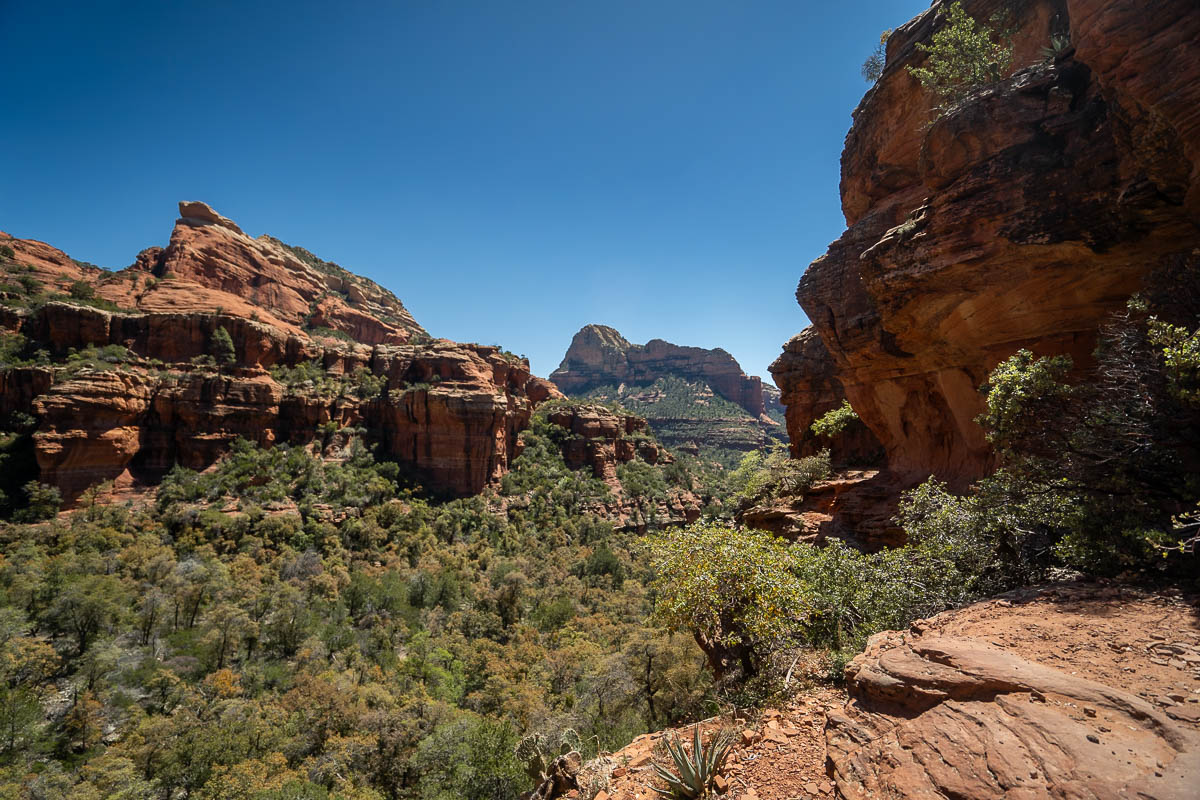
Watch out for rattlesnakes
Sedona is home to about a dozen species of rattlesnakes and I’ve read a handful of reports that hikers have encountered some along the trail. So I’d recommend keeping an eye on your footing and not using headphones as you hike.
Enjoy the Subway Cave—in our opinion, it’s one of the coolest caves in Sedona! Do you have any questions about getting here? Let us know in the comments below!

